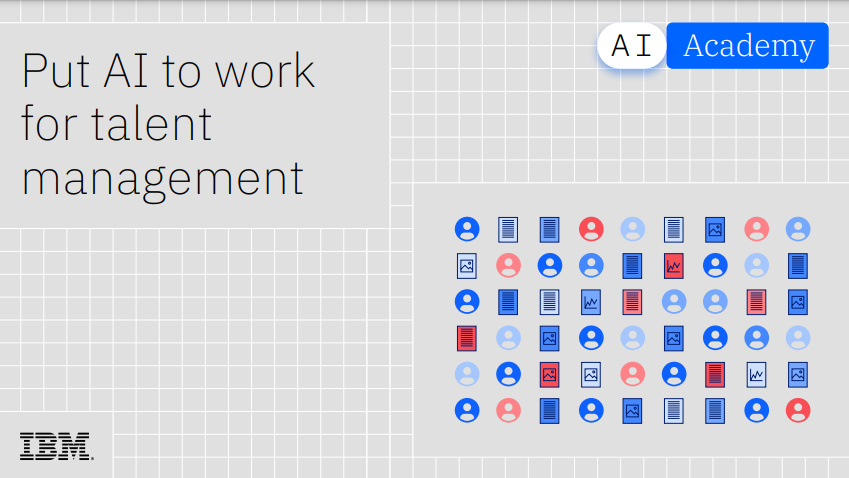Everything you need to know about IBM’s HashiCorp acquisition
IBM’s acquisition of HashiCorp represents a major signal of intent for the tech giant and its hybrid cloud and AI ambitions


Ross Kelly
IBM has revealed plans to acquire HashiCorp in a deal valued at more than $6 billion, marking a significant expansion of its hybrid and multi-cloud solutions portfolio for enterprise customers.
The confirmation from IBM follows intense speculation over a proposed deal for HashiCorp, first reported by the Wall Street Journal on Tuesday 23rd April.
Under the terms of the agreement, IBM said it will acquire HashiCorp for $35 per share in cash, representing a total enterprise value of $6.4 billion.
At its IPO in December 2021, HashiCorp was valued at over $14 billion and currently has a market cap of $5.8 billion.
HashiCorp chief executive Dave McJannet said IBM represents the "ideal home" for the company as it enters is next phase of growth.
"Today is an exciting day for our dedicated teams across the world as well as the developer communities we serve," he said.
"I'm proud of the work we've done as a standalone company, I am excited to be able to help our customers further, and I look forward to the future of HashiCorp as part of IBM."
Get the ITPro daily newsletter
Sign up today and you will receive a free copy of our Future Focus 2025 report - the leading guidance on AI, cybersecurity and other IT challenges as per 700+ senior executives
HashiCorp acquisition makes sense for IBM

Ross Kelly is ITPro's News & Analysis Editor, responsible for leading the brand's news output and in-depth reporting on the latest stories from across the business technology landscape. Ross was previously a Staff Writer, during which time he covered cloud computing, startups, and small business innovation.
The HashiCorp deal marks the latest in a string of major acquisitions by IBM, having completed two deals already so far in 2024, and underlines the growing enterprise appetite for hybrid and multi-cloud solutions in the age of generative AI.
It’s a topic that’s been bubbling to the surface over the last year amid questions over how enterprises can maximize the use of generative AI applications by leveraging hybrid cloud setups.
Speaking to ITPro in October last year, NetApp chief executive George Kurian suggested generative AI and hybrid cloud are converging technologies that would eventually amalgamate into a singular strategy - and there are several key reasons for this, including flexibility, cost considerations, and safety.
Hybrid cloud enables businesses exploring the use of generative AI tools to fine-tune strategies before taking the plunge to market, Kurian said. Similarly, the flexibility of hybrid cloud enables them to shift applications and workloads on and off the cloud based on their unique individual circumstances.
Experimentation in public cloud comes first, he noted, but the long-term goal for many enterprises would be to host generative AI workloads in a hybrid environment.
“I think the hybrid cloud is a classic AI business use case,” he told ITPro. “Customers will want to try proof of concepts on the public cloud where all the modern tools are available, and once they understand which makes sense, they can scale it in their own data center.”
With HashiCorp, IBM appears to have found a match made in heaven to deliver on this idea long-term. IBM chief executive Arvind Krishna specifically highlighted the “global excitement surrounding generative AI” as a factor in the deal, alongside evolving enterprise infrastructure needs.
"Enterprise clients are wrestling with an unprecedented expansion in infrastructure and applications across public and private clouds, as well as on-prem environments,” he said.
"HashiCorp has a proven track record of enabling clients to manage the complexity of today's infrastructure and application sprawl. Combining IBM's portfolio and expertise with HashiCorp's capabilities and talent will create a comprehensive hybrid cloud platform designed for the AI era," he added.
The shift to hybrid and multi-cloud setups - which involves a combination of on-prem and public cloud services - has raised infrastructure challenges for enterprises, particularly in terms of complexity.
It's an issue that IBM specifically highlighted in its 2023 annual report, noting that nearly two-thirds of companies “report difficulty managing these complex environments”.
It also predicted these challenges will be exacerbated as firms ramp up the deployment of generative AI across multiple clouds.
In this context, the HashiCorp acquisition can be seen as IBM putting its money where its mouth is. While the company has strong foundations on the AI and hybrid cloud fronts, and bringing HashiCorp’s capabilities into the equation will likely create a closer sense of alignment between these two aspects of the business.
HashiCorp certainly appears to be a "strong strategic fit", as IBM puts it.
What you need to know about HashiCorp
HashiCorp is a cloud infrastructure company that has a suite of tools aimed at helping IT professionals manage and automate multi-cloud environments, such as infrastructure as code (IaC) provisioning, and workload scheduling and orchestration.
RELATED WHITEPAPER

It lists customers including Vodafone, Deutsche Bank, and Starbucks.
HashiCorp started with an open source model, which has evolved over time to include free, enterprise, and managed service versions. All HashiCorp projects are accessible through a source-available license which the company said allows broad copying, modification, and redistribution.
It offers community, enterprise, and cloud offerings with free and paid tiers across its portfolio of products which include HashiCorp Terraform, Vault, Boundary, Consul, Nomad, Packer, Vagrant, and Waypoint.
Steve Ranger is an award-winning reporter and editor who writes about technology and business. Previously he was the editorial director at ZDNET and the editor of silicon.com.
- Ross KellyNews and Analysis Editor
-
 Cleo attack victim list grows as Hertz confirms customer data stolen
Cleo attack victim list grows as Hertz confirms customer data stolenNews Hertz has confirmed it suffered a data breach as a result of the Cleo zero-day vulnerability in late 2024, with the car rental giant warning that customer data was stolen.
By Ross Kelly
-
 Lateral moves in tech: Why leaders should support employee mobility
Lateral moves in tech: Why leaders should support employee mobilityIn-depth Encouraging staff to switch roles can have long-term benefits for skills in the tech sector
By Keri Allan
-
 IBM completes HashiCorp acquisition after regulatory approval
IBM completes HashiCorp acquisition after regulatory approvalNews IBM has completed its $6.4 billion acquisition of cloud automation and security firm HashiCorp,
By Emma Woollacott
-
 IBM eyes Oracle expertise gains with latest acquisition
IBM eyes Oracle expertise gains with latest acquisitionNews The deal aims to help IBM address the complexities of public sector cloud transformation
By Emma Woollacott
-
 UK regulator to investigate IBM takeover of HashiCorp
UK regulator to investigate IBM takeover of HashiCorpNews The CMA is concerned that the merger could affect competition in the cloud services market
By Emma Woollacott
-
 Channel Focus: All you need to know about IBM's partner program
Channel Focus: All you need to know about IBM's partner programHow Big Blue seeks to go deep, tackling enterprise complexity: A brief guide to the role of partners in IBM's plan to accelerate software and consulting sales.
By Fleur Doidge
-
 Put AI to work for talent management
Put AI to work for talent managementWhitepaper Change the way we define jobs and the skills required to support business and employee needs
By ITPro
-
 Let’s rethink the recruiting process
Let’s rethink the recruiting processwhitepaper If you designed your recruiting process for a new company, what would you automate to attract and hire the best talent?
By ITPro
-
 The power of AI & automation: Productivity and agility
The power of AI & automation: Productivity and agilitywhitepaper To perform at its peak, automation requires incessant data from across the organization and partner ecosystem.
By ITPro
-
 Supply chain services, 2023
Supply chain services, 2023whitepaper Covering the leading service providers in enterprise supply chain innovation
By ITPro